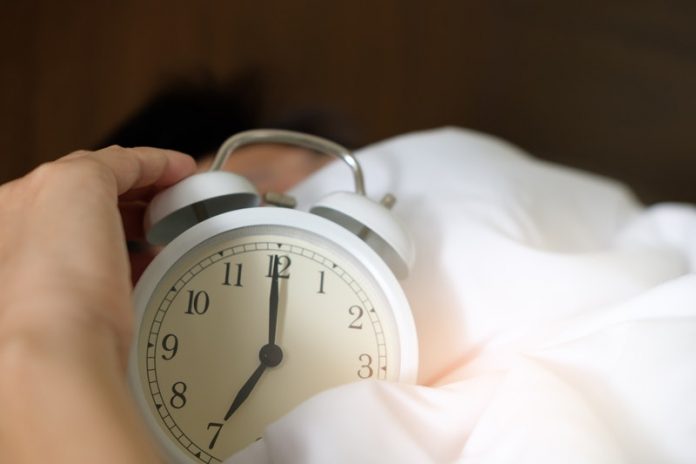
Scientists from Northwestern Medicine found that having trouble falling or staying asleep may leave you feeling tired and frustrated.
It also could subtract years from your life expectancy.
The effect was even greater for people with diabetes who experienced sleep disturbances.
The research is published in the Journal of Sleep Research and was conducted by Kristen Knutson et al.
In the study, the team found participants with diabetes who experienced frequent sleep disturbances were 87% more likely to die of any cause during the 8.9-year study follow-up period.
They were 12% more likely to die over this period than those who had diabetes but not frequent sleep disturbances.
The researchers analyzed existing data of nearly half a million middle-aged participants in the UK Biobank Study.
To the scientists’ knowledge, it is the first study to examine the effect of the combination of insomnia and diabetes on mortality risk.
Participants had predominately Type 2 diabetes, the most prevalent form, though some had Type 1.
The team says although they already knew that there is a strong link between poor sleep and poor health, this illustrates the problem starkly.
Doctors should take sleep problems as seriously as other risk factors and work with their patients on reducing and mitigating their overall risk.
The team says if you don’t have diabetes, your sleep disturbances are still linked to an increased risk of dying, but it’s higher for those with diabetes.
But by answering one simple question—”Do you have trouble falling asleep at night or do you wake up in the middle of the night?”—people can begin to address sleep disturbances earlier in life and hopefully lower this increased risk of death.
If you care about sleep, please read studies about why people with sleep apnea are more likely to have high blood pressure, and this herb may help you sleep better at night.
For more information about sleep, please see recent studies about sleep warnings for older men, and results showing this treatment can reduce the severity of sleep apnea by one-third.



